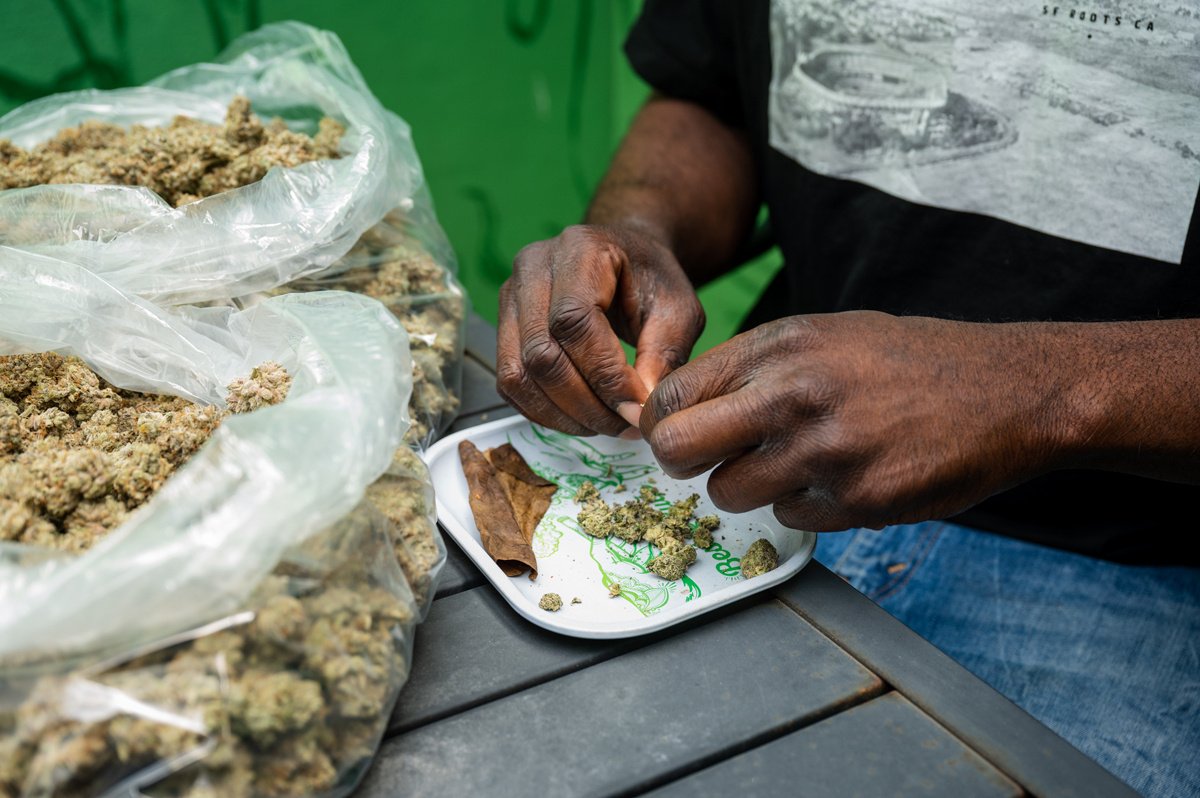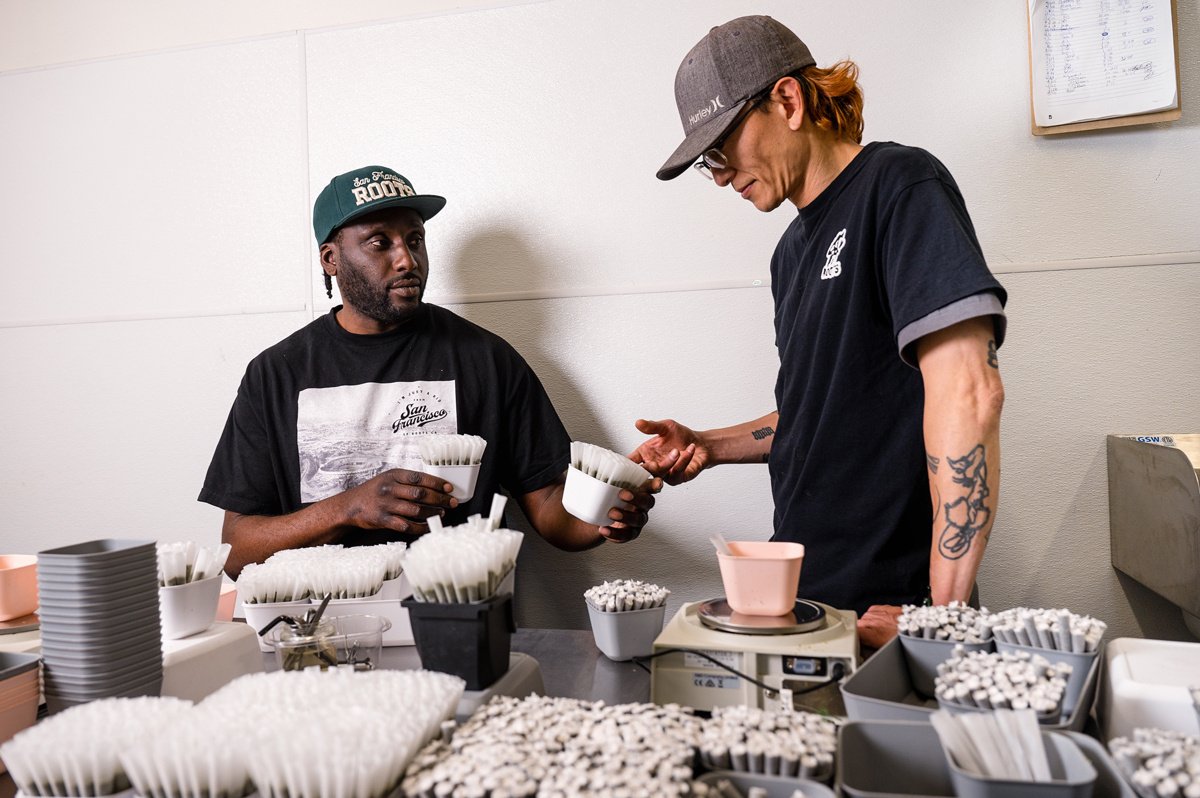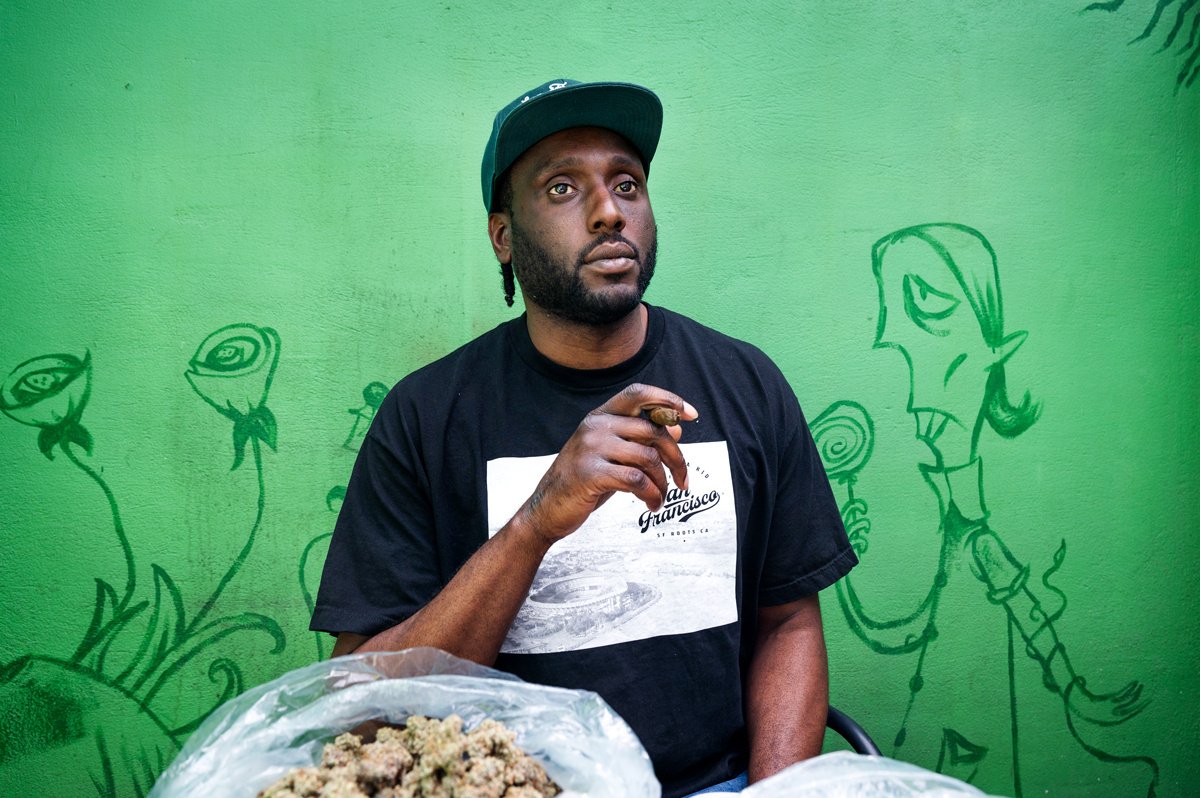When your job becomes legal: the career of a cannabis worker
May 18, 2022
8 mins
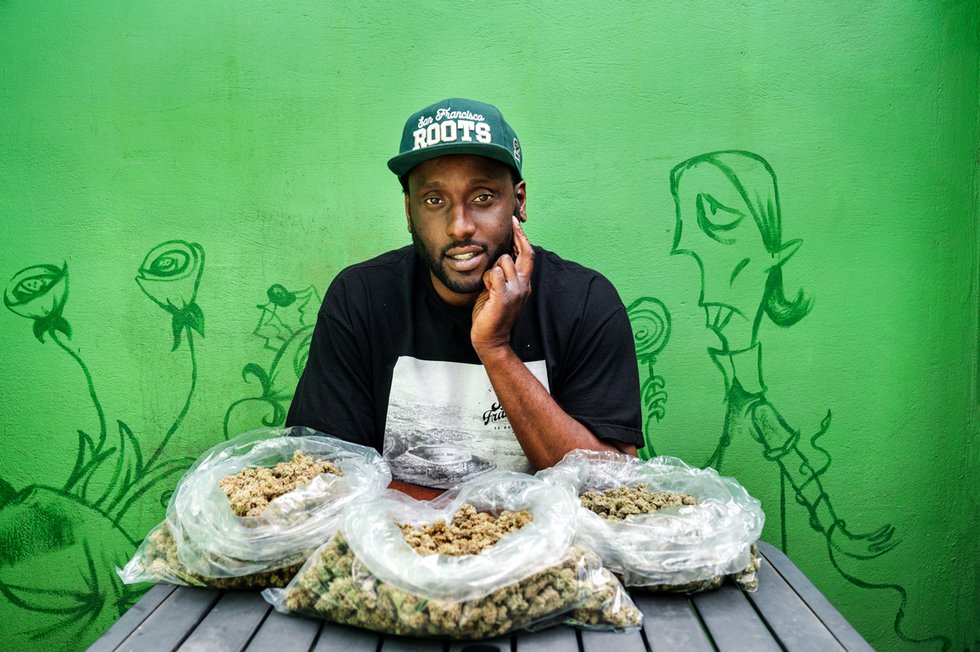

Journalist and translator based in Paris, France.
If labor policies on minimum wage and sick leave can change the lives of employees, imagine the impact when an illegal market suddenly goes legit. In this series, we look at how legalization impacts workers’ career trajectories, personal lives, and everything in between.
Cannabis is on the brink of shaking up the working world, whether or not you smoke it. In fact, it’s one of the fastest-growing industries in the US: 21 states have permitted its medical use and 18 states have approved it recreationally — leaving only 11 states where it remains completely banned.
This rise in legalization is affecting workers in all sorts of ways. Some of the changes are small: employers are moving from zero-tolerance drug testing policies to one based on “reasonable suspicion when workers exhibit behaviors that may indicate intoxication,” according to the Society for Human Resource Management. These might include sleeping on the job, red eyes, slurred speech, or an odor of marijuana.
Then there are bigger shifts: labor laws surrounding the new sector are boosting unions, as cannabis accounted for most of the retail sector’s big union gains in 2021. Above all, the burgeoning market — one industry report projects sales will more than double by 2030 — is expected to create an enormous economic boom for Black, Latinx, and other communities that have been disproportionately affected by the criminalization of weed.
But legalizing a whole new market involves a lot of gradual policy changes, which can be confusing for workers and employers in this industry. While some states have green-lit marijuana sales for medical or recreational use, it remains federally banned, complicating essential facets of business from securing loans to insurance. What’s more, many who built a career in the marijuana industry long before legalization now struggle to make ends meet. Known as “legacy” workers, these cannabis experts must learn the ropes of legal business practices like paying taxes and drawing up contracts. Meanwhile, corporate-minded entrepreneurs — who are fluent in the ABCs of above-ground business, have more access to capital and aren’t encumbered by criminal records for dealing or possession — are taking up a large slice of an already crowded market.
In an effort to help legacy laborers regain their footing, certain states have instituted Social Equity programs that aim to support workers and business from underserved communities, especially those that have been disproportionately penalized by cannabis prohibition. New York, for example, recently made waves when it announced the state’s first licenses for recreational cannabis will be reserved for applicants who are either related to someone convicted of a marijuana-related offense or have been convicted themselves. These programs, however, don’t outweigh high taxes and costs of production, nor the difficulty of finding investors or banking options in a market that’s not federally approved. Some do little more than hand out licenses, leaving applicants to figure out the logistics of legal business ownership themselves.
Despite all this, there are tenacious cannabis veterans who continue to fight for their careers. Instead of sterling CVs and impressive references that reflect their knowledge and experience, many have jail time clouding their job applications. But if their push to participate in this choppy transition period is successful, they could build a novel, grassroots-based foundation for the entire industry. Here’s a glimpse of how that future may change economics and lives.
Morris Kelly cut his teeth in the Haight-Ashbury district of San Francisco, a neighborhood famous for its 1960s counterculture and its weed. He began his career in the early 2000s, selling local grass to eager tourists looking to try California’s renowned delicacy. He was 16 and soaking up a way of doing commerce that would set the course for his adult life. “Just the hustle, you know? Meeting a lot of people, not being afraid to speak, shaking hands. Now it’s shaking hands and kissing babies.”
In his two decades of working with marijuana, Kelly has run grow houses, launched multiple cannabis delivery services, manufactured edibles for dispensaries, spent time behind bars, had his assets confiscated by the police and founded a cannabis brand that’s currently present in 58 retail locations.
Kelly’s business, SF Roots, is mostly renowned for being one of San Francisco’s first social equity companies. The process turned Kelly into a local pillar, and what some might call networking — shaking hands and kissing babies — is a big part of his company’s success. He frequently uses the word “community” when discussing his job and his industry, and his ultimate goal isn’t necessarily to make millions. It’s to ensure his people have their rightful seat at the table.
Kelly has seen the statistics play out firsthand: Black Americans make up somewhere between 1.2% and 1.7% of cannabis company owners, even though they constitute 13% of the national population and, according to a 2020 ACLU report, are 3.64 times more likely than white Americans to be arrested for marijuana possession — the charge that makes up 89.6% of marijuana-related arrests. This arrest rate for Black Americans has persisted since 2010, meaning the decriminalization and legalization efforts of various states have yet to rectify this glaring discrepancy.
In the real world, these numbers are lived out by people like Kelly: Between the ages of 18 and 25, he was shuffling in and out of jail. At the time, medical marijuana had been legalized but approval for recreational usage was yet to come. After a couple years of dealing on the streets, a friend pointed out that Kelly could upgrade from covertly taking buses all over town to starting a certified delivery service for medical patients. Then when Kelly was 19, another friend invited him to help operate a grow house (an indoor space for growing weed) that sold to medical dispensaries. His now-formidable knowledge of cannabis cultivation began during this period, as he learned the ins and outs of the plant and its business through these friends, their friends, their family members… in a word, through his community. And one of his lessons was that medical marijuana laws limited the amount of cannabis producers were allowed to grow and sell. So to make ends meet, Kelly operated both above and underground.
His longest stint behind bars lasted for 8 months. “I woke up and was like, I can’t survive like this. I can do it, but this is no fun.” He decided to double down on his legal cannabis delivery service and building his brand. “I took all of the money that I got off the streets. I put it into this grow house to do all right.” He dedicated himself to expanding his business skills and transforming his whole company to make a profit while running within the confines of the law.
Then his business partner was charged for an illegal marijuana-related offense, and the authorities suspected Kelly was involved. The next thing Kelly knew, the cops were at his door.
“They raided the grow house, raided my friend’s house, raided my house, raided his parents house, froze all of the assets, froze all of my assets. You know, next thing I know I was in jail. Literally, they took my dog who had just had puppies. I didn’t know which way was up or down because like, you know, I gave up a lot of everything to just focus on cannabis and make sure that I stayed straight and narrow.” Even after recreational marijuana was legalized and social equity programs started recognizing the unfair policing of cannabis workers, he never got the confiscated assets from his medical business back.
Freeing Kelly from the vicious cycle of jail and constant courtroom visits didn’t just take a village — it took the kind of close-knit, informal commune that begets political change at a grassroots level. As he’d been living alone during the raid, no one knew where he was and he couldn’t get the word out that he was locked up. He spent the first couple of weeks just trying to stay sane.
Eventually, a friend who worked at a local animal rescue recognized Kelly’s dog, who had been brought in by the police, and alerted Kelly’s contacts. His community gave him all the support they could, paying him visits and even covering the costs for an attorney.
Once he was back in the open, Kelly could feel the legalization of recreational weed wasn’t far off. He continued his court battle while scaling his business, which now involved running an events team that presented his product at trade shows. Keeping his employees paid while facing the threat of a double-digit prison sentence was exhausting. “They were really trying to throw my life away… But I somehow survived it and was able to take a good plea deal from the court. They wanted me out of their hair. So basically I had to just forfeit my money and they gave me 30 days probation after five years in the court.”
Yet right when one faction of the government took all of Kelly’s assets, another changed his business, career and life for the better.
When Kelly wasn’t paying bi-monthly visits to the court in City Hall, he was pushing to get in on the city’s brand new social equity program that provided cannabis licenses to people with marijuana-related convictions. Like many social equity programs, San Francisco recognizes that people like Kelly are heirs to the Black and Latinex suffering caused by the War on Drugs. On June 17, 1971, President Nixon declared that drug abuse as “America’s public enemy number one,” launching a draconian campaign to curb illegal substances. Drugs were classified into new federal categories that determined their risk and, largely for political reasons, marijuana was labeled as a much more dangerous substance than scientific research indicated. At the same time, he increased law enforcement and minimum sentences around drug-related crimes. Since this policy change, the incarceration rate for Black Americans has exploded, with most cases connected to drugs.
Weighted by the responsibility of providing for his employees, “I had to make sure that I was doing everything in my power to make sure I was going to be here for them,” Kelly says.“ So that included getting really close [to] and having to have some really intimate conversations with the Office of Cannabis here who were, for a moment of time, a second home, helping me get through that process and that period of life.” San Francisco’s Office of Cannabis didn’t just counsel him on how their programs worked, but kept an open door for all kinds of discussions. “Some days, I would just go there to talk. If the Office of Cannabis hadn’t been there for me, I couldn’t be there for them, you know, for my people now.”
And although the recreational marijuana market is legal and social equity programs are stepping up to the plate, his people need him as much as ever. In California, the “craft” cannabis industry is teetering on the edge of extinction as heavy state taxes, reaching up to 50% in certain municipalities, are vacuuming the finances of mom and pops. What’s more, some municipalities not only lack local social equity outlets, they’ve outright banned cannabis retail. Meanwhile, social equity programs across the country are being taken to court, such as the Illinois lawsuits accusing Social Equity of unfairly disadvantaging other applicants.
The large corporations that have swooped in on the new industry with plenty of capital may be able to survive these hurdles. But it could drive smaller businesses, many of which are social equity companies, under — and the expertise of legacy workers like Kelly may disappear along with them. Despite learning all the weed increments at 16, cooking and infusion methods for edibles at 18, and how to run a legal delivery service at 25, he’d “always had an older white partner that could walk into certain establishments that I couldn’t or play certain roles that I couldn’t,” until he obtained his social equity license.
After all his years of being at the mercy of both the good and the bad of California’s legal system, Kelly is not about to watch skilled, community-oriented legacy workers lose their ground to policies that favor venture capitalism. “I’m a completely different person than the one who’d stepped into the courtroom before, who was just like a pot grower and had a delivery service,” he says. “I’m helping out other equity applicants, you know, showing up at City Hall for speeches.”
Morris Kelly has become a prominent local activist and businessman, but he remains an artisan. His enthusiasm for cultivation techniques and the quality of cannabis flowers reveals the same proficiency and passion found in conversations with beer brewers, wine makers or any other agricultural craftsperson who loves what they do. “I remember being like 14 years old, like, ‘I’m never going to quit smoking weed, I don’t care.’ Here I am, thirty-eight years old, and I still got the same feeling. I don’t think that you really get that when you’re dealing with corporate cannabis or people who are into the plant more for profit.”
Photo: Welcome to the Jungle
Follow Welcome to the Jungle on Facebook on LinkedIn and on Instagram and subscribe to our newsletter to get our latest articles every day!

More inspiration: Inspiring profiles
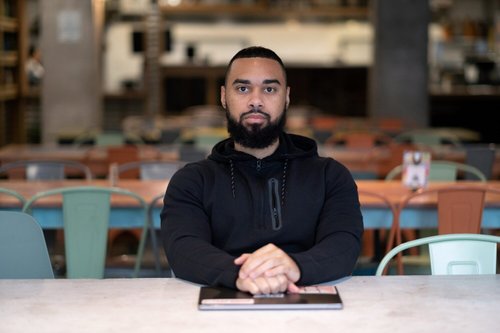
Be real, get ahead: The power of authenticity in your career
Pabel Martinez shares insights on how to allow yourself to be yourself, find your voice, and deconstruct stereotypes at work.
Apr 25, 2024
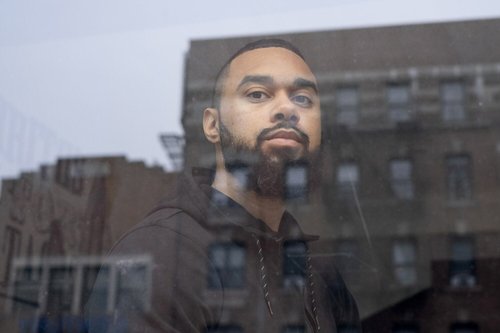
The professionalism paradox: Navigating bias and authenticity with Pabel Martinez
Pabel Martinez challenges the conventional norms of professionalism by unraveling the complexities of workplace discrimination.
Mar 11, 2024
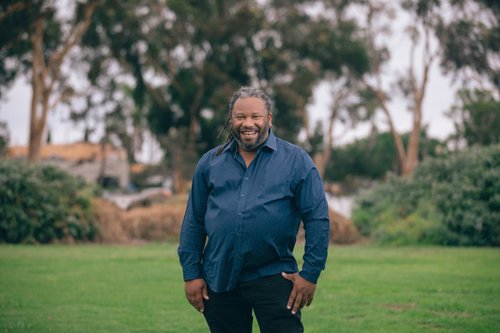
How play can make you happy, creative and productive at work
Work-life balance usually means separating work and play, but it might be a better marriage than you think...
Nov 07, 2023
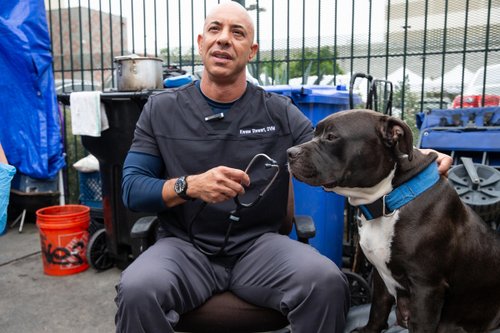
Project Street Vet: Caring for the unseen paws of Skid Row
Providing vet-to-pet care in some of California's largest homeless communities, Dr. Kwane Stewart shares the ups and downs of his remarkable work.
Aug 29, 2023

Girls learn how to have fun – and funds – by investing
A Danish trio is fighting gender inequality... on the stock market. We had a chat with one of the co-authors of the book Girls Just wanna Have Funds
Jan 30, 2023
The newsletter that does the job
Want to keep up with the latest articles? Twice a week you can receive stories, jobs, and tips in your inbox.

Looking for your next job?
Over 200,000 people have found a job with Welcome to the Jungle.
Explore jobs
